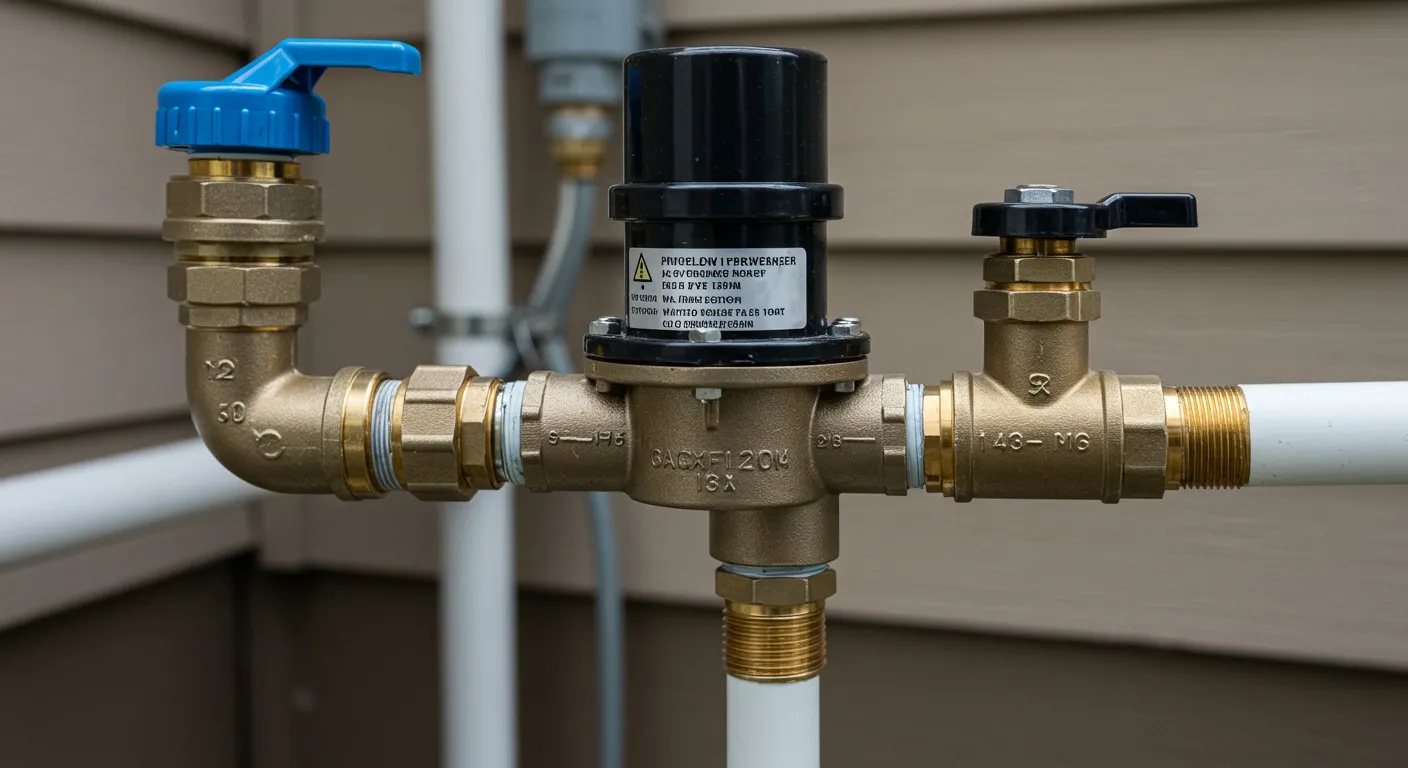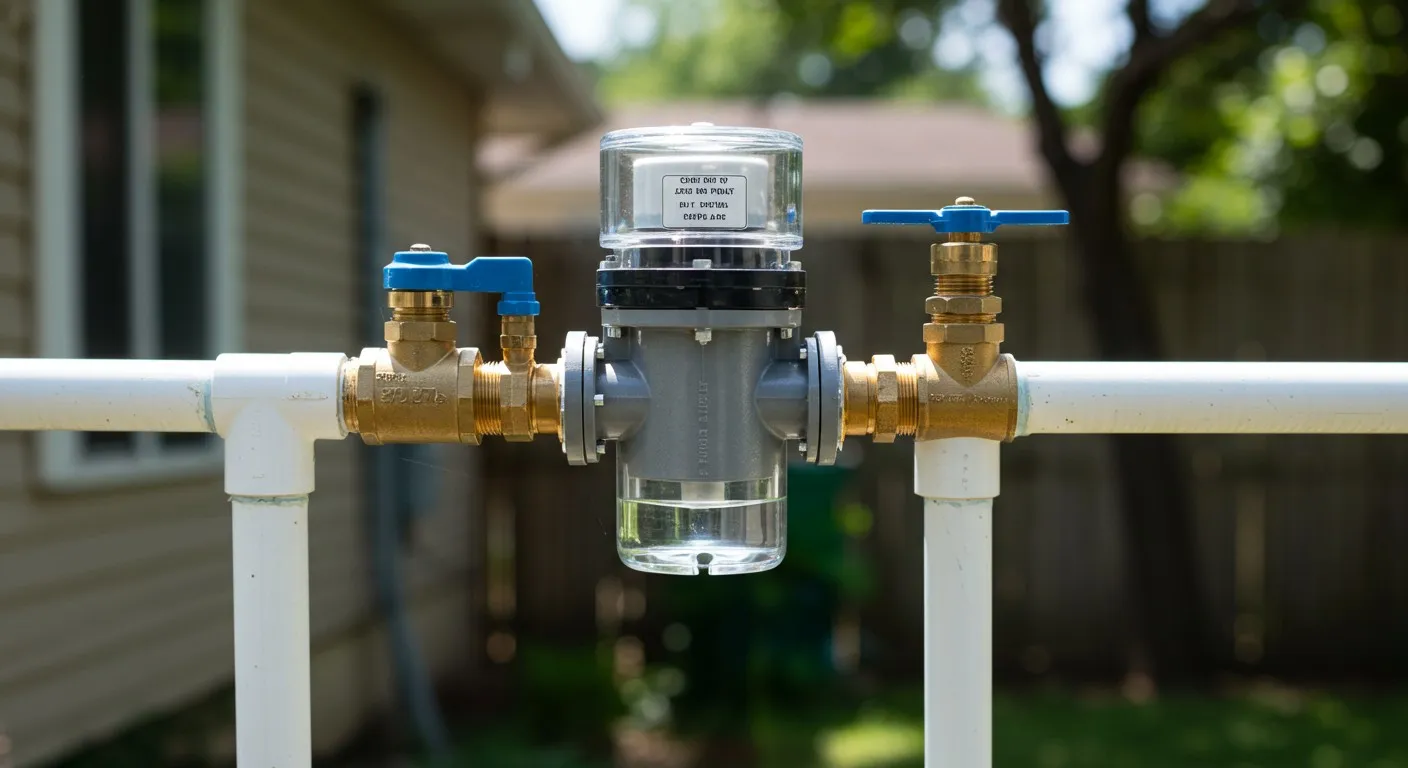Backflow Prevention Services in Vienna, VA
Protecting your home or business's water supply is crucial, and backflow prevention plays a vital role in maintaining its safety and purity. In Vienna, VA, ensuring your plumbing system prevents contamination from backflow is not just a matter of good practice, but often a regulatory requirement. Understanding what backflow is, why it's dangerous, and how professional services can help is the first step in safeguarding your water.

What is Backflow?
Backflow is the undesirable reversal of the flow of contaminated water or other substances into the potable (drinkable) water supply. Normally, water flows from the main municipal supply line into your property. However, changes in water pressure can cause water to flow backward. This can happen due to:
- Backpressure: When the pressure in your internal plumbing system is higher than the pressure in the main water supply line. This could be caused by things like pumps, thermal expansion, or elevated plumbing.
- Backsiphonage: When there is a drop in pressure in the main water supply line, creating a vacuum that pulls water back from your property. This can occur during events like water main breaks, significant fire hydrant usage, or large-scale water consumption nearby.
If your plumbing system has a connection to a source of potential contamination – such as irrigation systems, fire sprinkler systems, hot tubs, or even a hose submerged in a bucket of cleaning solution – backflow can draw this contaminated water into your clean drinking water lines, potentially affecting your property and even the public water system.

The Critical Importance of Backflow Prevention
The primary reason for backflow prevention is public health. Contaminated water introduced through backflow can carry harmful bacteria, chemicals, and other pollutants, posing serious health risks to anyone who consumes or uses the water. This includes potential exposure to pesticides, fertilizers, industrial chemicals, and waste materials.
Beyond health concerns, many local water authorities and municipalities in Virginia, including areas serving Vienna, require backflow prevention devices on certain types of properties or connections to the water system. Regular testing of these devices is also often mandated. Non-compliance can result in fines or interruption of water service.
Implementing effective backflow prevention measures ensures that water only flows in one direction – from the clean supply into your property, creating a barrier against potential contamination events.
Types of Backflow Prevention Devices
Different situations require different types of backflow prevention devices, depending on the degree of hazard posed by the potential contaminant source. Certified plumbers specializing in backflow can assess your specific needs and recommend the appropriate device. Common types include:
- Atmospheric Vacuum Breakers (AVB): One of the simplest and least expensive devices, AVBs are typically used in low-hazard applications, such as hose bibs or simple irrigation systems. They work by opening an air vent when pressure drops, preventing backsiphonage. However, they are only effective against backsiphonage and cannot be used under continuous pressure.
- Pressure Vacuum Breakers (PVB): Similar to AVBs but designed for applications under continuous pressure, such as more complex irrigation systems. PVBs include a check valve and an air inlet valve. They protect against backsiphonage but not backpressure.
- Double Check Valve Assemblies (DCVA): These consist of two independent check valves in a series, along with test ports. DCVAs are suitable for moderate hazard situations, like some fire suppression systems or commercial properties with low risk. They protect against both backpressure and backsiphonage but are not recommended for high-hazard applications where the contaminant is highly toxic or hazardous.
- Reduced Pressure Zone Assemblies (RPZA): Considered the most reliable device for high-hazard applications, RPZAs feature two independent check valves, a hydraulically operating pressure differential relief valve between the check valves, and test ports. The relief valve opens to vent water if the pressure in the zone between the check valves drops, preventing backflow. RPZAs are often required for connections to boilers, medical equipment, and commercial or industrial processes involving potentially hazardous substances.
Selecting and installing the correct device requires expertise to ensure it meets local codes and effectively protects the water supply based on the specific cross-connection risk present at your property in Vienna.
Backflow Testing Requirements in Vienna, VA
To ensure backflow prevention devices remain operational and effective, regular testing is typically required by water authorities. In many areas, including those serving Vienna, VA, this testing must be performed annually by a certified backflow testing professional.
During a backflow test, the technician uses specialized equipment to check if the device's components (like check valves and relief valves) are functioning correctly and holding the required pressure differentials. A malfunctioning device may not provide adequate protection against backflow.
After a successful test, the technician will typically submit a report or certification to the local water authority, confirming the device is in good working order. If a device fails the test, it must be repaired or replaced promptly to restore proper protection and comply with regulations. Failing to test or maintain your backflow preventer can lead to non-compliance issues, potential fines, and the risk of contaminating the water supply.
Professional Backflow Prevention Services
Addressing backflow requires specialized knowledge and certification. Professional plumbing services offer comprehensive solutions for backflow prevention, including:
- Site Assessment: Evaluating your property's plumbing system to identify potential cross-connections and determine the degree of hazard involved. This assessment helps in selecting the appropriate type of backflow prevention device.
- Backflow Preventer Installation: Installing the correct type and size of backflow prevention device according to manufacturer specifications and local plumbing codes. Proper plumbing repipe work may be necessary to accommodate the device placement. Correct installation is critical for the device's effectiveness and longevity.
- Annual Backflow Testing: Performing the required annual testing of installed devices using calibrated equipment and providing the necessary certification paperwork for local authorities.
- Backflow Preventer Repair: Diagnosing issues with existing backflow preventers that have failed testing or are showing signs of malfunction. Experienced technicians can repair or replace faulty components to restore the device to working condition.
- Backflow Preventer Replacement: If a device is beyond repair, outdated, or the hazard level has changed, professionals can advise on and install a suitable replacement.
Working with a qualified, certified plumber ensures that your backflow prevention needs are handled correctly, providing peace of mind that your water supply is protected and you remain compliant with local regulations in Vienna, VA. Professionals stay up-to-date on the latest device technology and testing protocols, offering reliable and effective service. Services like pipe leak repair or general plumbing service can also be related, as the integrity of your overall plumbing system contributes to preventing backflow issues.
Investing in professional backflow prevention services is an investment in the health and safety of your household or business, as well as compliance with important water quality standards.
Trusted Brands.
We partner with industry-leading manufacturers to ensure your plumbing system runs on durable, high-quality parts built to last.


















Customer Testimonials
Cherry Blossom Plumbing has consistently provided top-notch service, ensuring every issue is resolved efficiently and professionally.

Service Areas
Proudly serving Arlington and the surrounding Virginia communities with fast, reliable plumbing solutions you can count on.




